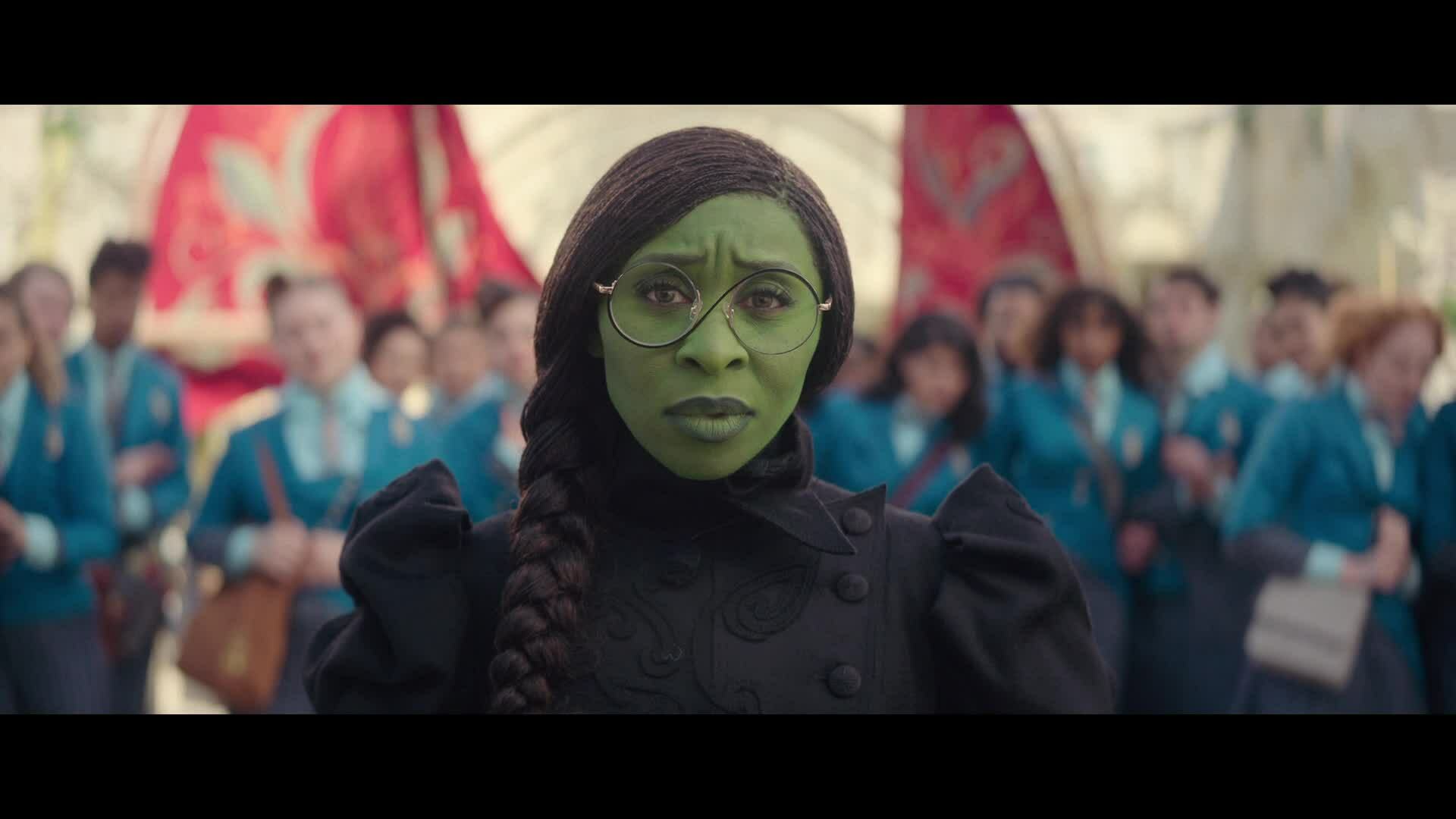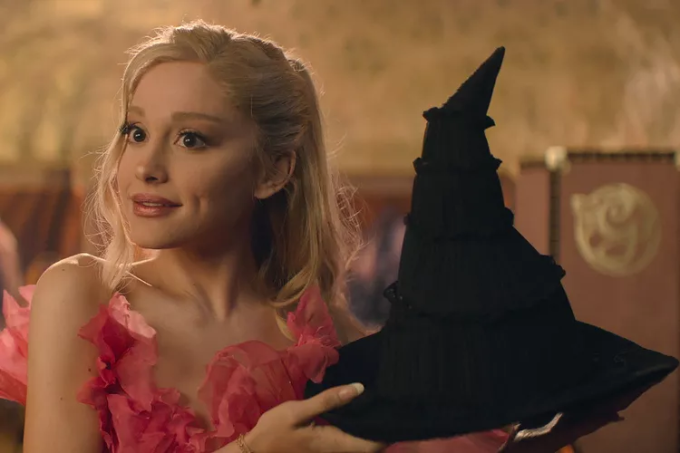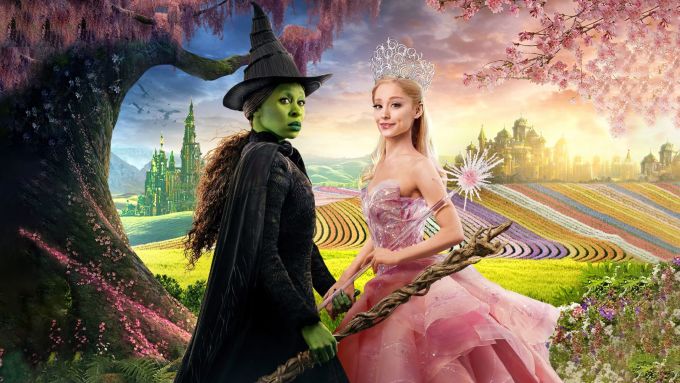Blog
Wicked: A Celebration of Embracing Differences and Overcoming Prejudice
“Wicked,” the cinematic adaptation of the beloved Broadway musical, explores the transformative journey of two women, Elphaba and Galinda, in a world where the lines between good and evil are blurred. Directed by Jon M. Chu, Wicked is inspired by Gregory Maguire’s novel and the famous Broadway production that first premiered in 2003. With Cynthia Erivo playing the lead role of Elphaba, a young woman with green skin, the film explores themes of acceptance, identity, and the courage to defy societal expectations.
Elphaba’s Struggle for Acceptance
Elphaba (Cynthia Erivo), despite her remarkable magical powers, is continuously ostracized due to her green skin. Her struggle to gain acceptance in a world that constantly judges her for her appearance forms the emotional core of Wicked. In the film, Elphaba’s journey is one of self-discovery and resilience. From a young age, she faces rejection, even from her own father. The constant mockery she endures causes deep self-doubt, yet she continues to strive for acceptance, hoping that the world will recognize her for her true worth.
The story takes a significant turn when Elphaba meets Galinda (Ariana Grande) at Shiz University in the land of Oz. Initially, their personalities clash, but over time, they form a strong and lasting friendship. Despite facing prejudice, Elphaba’s desire to do good and prove herself becomes her driving force. When invited by the Wizard (Jeff Goldblum) to the Emerald City, Elphaba embarks on a journey of self-exploration, alongside Galinda, as they begin to realize that their world is not as simple as it seems.
A Tale of Transformation and Growing Awareness
Throughout the film, director Jon M. Chu masterfully portrays the evolution of both Elphaba and Galinda. The story starts with a somber reflection on the death of Elphaba, who is condemned as the “Wicked Witch of the West.” The narrative then delves deeper into Elphaba’s past, exploring the experiences that shaped her into the person she becomes. From her rejection at birth to her first steps into magic at Shiz, Wicked reveals how Elphaba’s identity and choices are influenced by society’s biases.
Despite enduring ridicule and rejection, Elphaba continues to aspire to be a force for good. However, her trust in the older witches and the authorities around her leads to betrayal. As she faces heartbreak, loss, and isolation, she remains steadfast in her pursuit of justice and her desire to fight against oppression. The story serves as a reminder that sometimes, even good intentions can be manipulated, and the pursuit of justice can be a lonely path.
Exploring the Grey Areas Between Good and Evil
One of the most powerful messages of Wicked is the exploration of moral ambiguity. The film challenges the conventional understanding of good and evil, showing that actions often arise from pain, misunderstanding, or prejudice. Elphaba’s quest to clear her name and defy the accusations of evil is symbolic of the desire for freedom and the need to protect one’s identity from societal pressure. Her flight on a broomstick represents her yearning for autonomy and her determination to rise above the constraints placed on her by others.
By focusing on the internal struggles of its characters, Wicked conveys that no one is inherently evil. Environment, circumstances, and societal beliefs can shape a person’s actions, turning someone perceived as “good” into a figure of fear and hostility. This nuanced perspective invites viewers to question their assumptions and consider how they, too, may be influenced by external judgments and preconceived notions.

The Impact of Music and Performance
One of the standout elements of Wicked is its musicality, with the film showcasing an array of captivating songs. The film features beloved tracks from the Broadway musical, including Popular and Defying Gravity, reimagined with a fresh twist. The performances of Cynthia Erivo and Ariana Grande are exceptional, both delivering powerful vocal performances. Erivo’s mastery of tone and Grande’s dynamic vocal range bring depth to the characters, while their physical acting and choreography further elevate the narrative.
In particular, Erivo’s portrayal of Elphaba shines through in the film’s more intimate moments. Her ability to convey Elphaba’s internal struggles through her expressions and body language adds layers to the character, helping audiences empathize with her journey. Grande’s portrayal of Galinda, on the other hand, brings a delightful sense of humor and innocence to the screen, providing a perfect counterbalance to Erivo’s intensity.
Stunning Visuals and Set Design
The film’s production values are top-notch, with lavish set designs and stunning visual effects that bring the fantastical world of Oz to life. The Munchkinland scenes, for instance, feature a breathtaking display of nine million real tulips planted across the English countryside. The Shiz University set, where Elphaba and Galinda’s friendship blossoms, took 20 weeks to build and includes elaborate hallways and a boat-filled campus, offering a visual spectacle that enhances the immersive experience of Oz.
The use of CGI technology further enriches the world of Wicked, enabling the filmmakers to create magical moments that transport viewers to an enchanting, otherworldly realm. These visual elements, combined with the emotional depth of the narrative, make the film a truly immersive experience.

Wicked has received widespread acclaim from critics. According to Variety, the film is a captivating adaptation of the Broadway musical, which itself is based on L. Frank Baum’s The Wizard of Oz series. Critics have praised the film for its exploration of social issues such as discrimination and the importance of empathy. The Atlantic commended the film for successfully blending the grandeur of the Broadway musical with the subtleties of cinematic language.
However, not all reviews have been entirely positive. USA Today described the film as “adequate” but criticized its pacing, suggesting that the plot could have been more engaging and that some viewers might find the musical numbers tiresome, especially if they aren’t familiar with the genre.
Conclusion: A Tale of Acceptance and Transformation
Wicked is more than just a tale of magic and wonder; it is a story of growth, understanding, and the power of embracing differences. Through Elphaba and Galinda’s journey, the film encourages viewers to reflect on their own biases, to challenge preconceived notions, and to recognize the humanity in everyone, regardless of how different they may seem.
With its compelling performances, stunning visuals, and powerful themes, Wicked is a cinematic triumph that speaks to the importance of empathy, acceptance, and the ongoing fight against prejudice. It reminds us that we are all capable of change, and that no one is truly defined by the labels placed upon them.
 Skip to content
Skip to content

